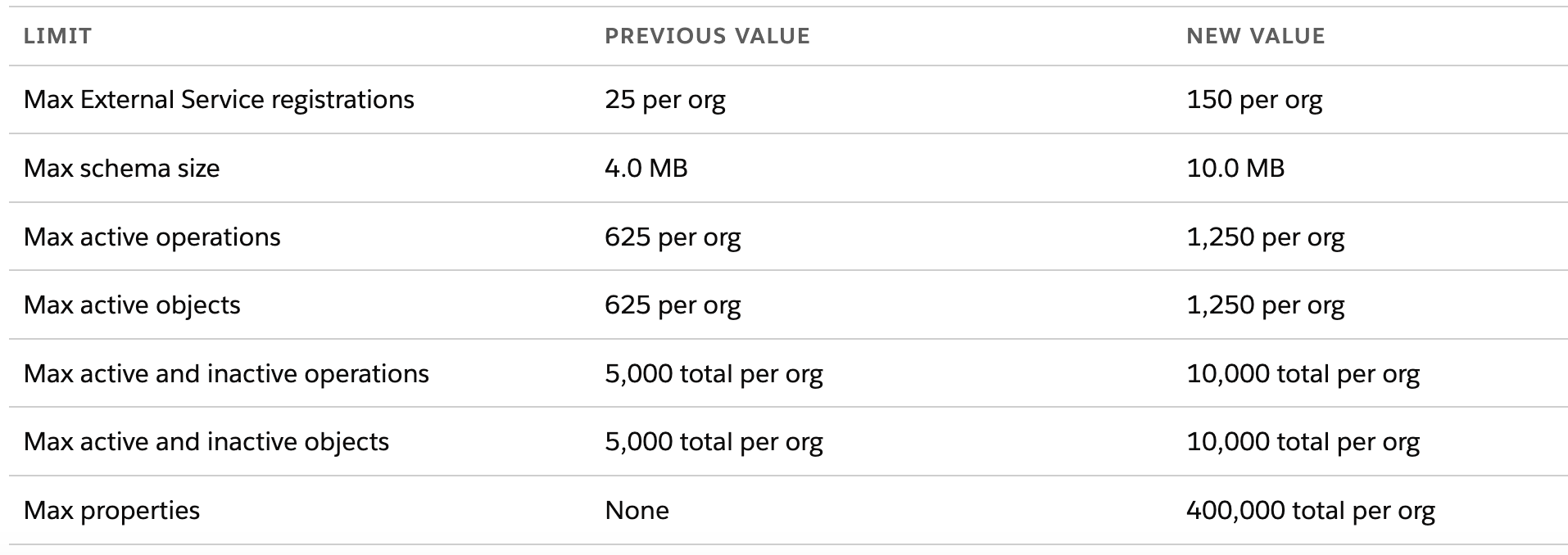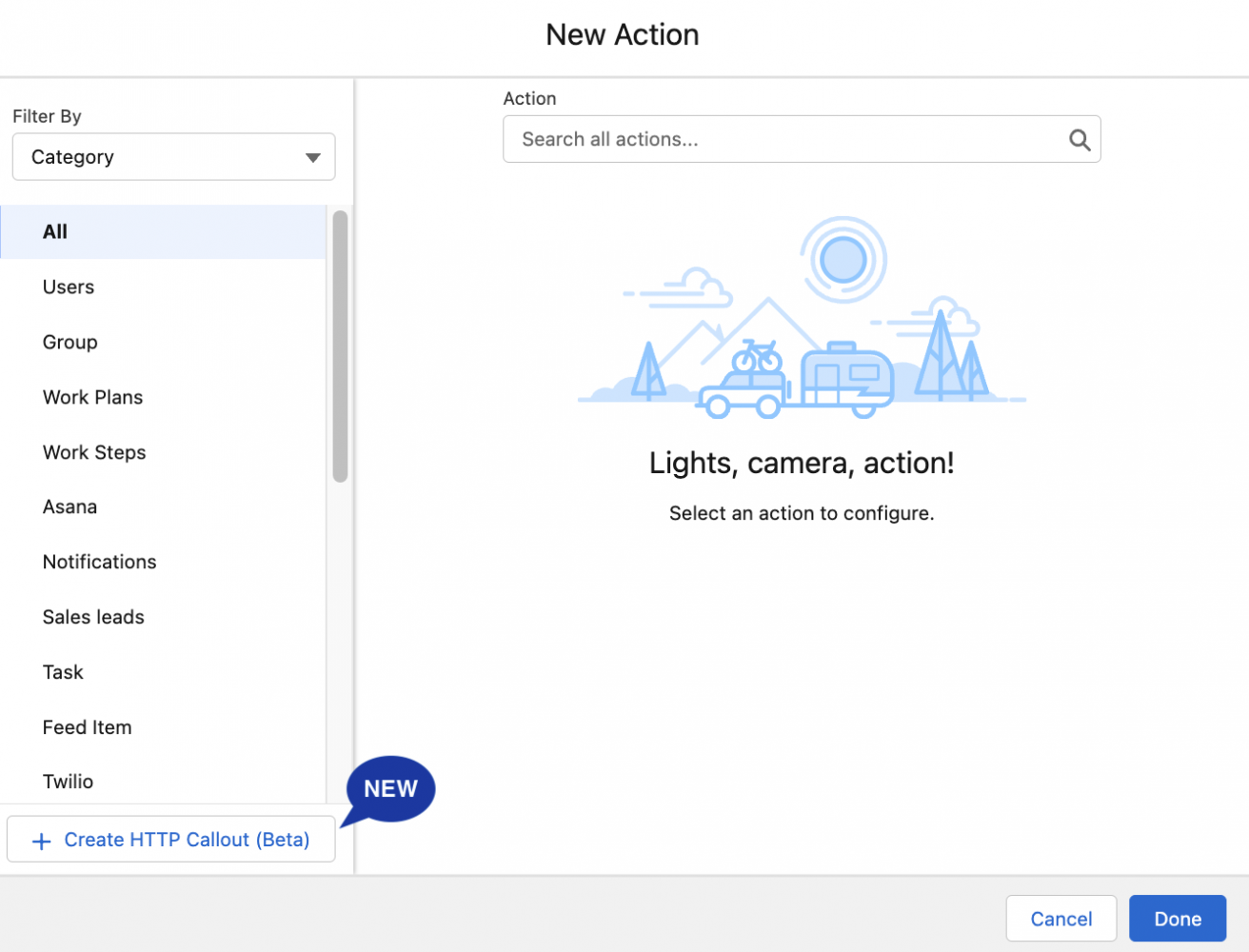Follow and complete a Learn MOAR Spring ’23 trailmix for developers or admins by March 31, 2023, 11:59PM PT to earn a special community badge and be automatically entered for a chance to win one of five $200 USD Salesforce Certification vouchers. Restrictions apply. Learn how to participate and review the Official Rules by visiting the Trailhead Quests page.
External Services is a feature of the Salesforce Platform that empowers customers to connect Salesforce to external business actions and build process integrations without writing custom code. In this blog, we’ll take a look at the new system limits in External Services, as well as an important API update.
External Services Updates
Using External Services, developers can take a process that sits behind an OpenAPI specification and accelerate the creation of actions that invoke functionality in other systems from within Salesforce. This provides a valuable way to leverage Salesforce process automation tools to automate anything.
Over the last few releases, we’ve enhanced External Services so you can seamlessly integrate with more high-value third-party platforms and build upon their published APIs without having to manually edit specifications before registering.
In Spring ‘23, we revised and expanded our limits so you can register large publicly accessible API specs and choose all operations from within a single registration. Below are the previous limits and the new, rescoped values for Spring ’23.

Additionally, we’ve made it easier to track External Services limits by providing five visual gauges at the top of the page to show the current usage and maximum values for each per org limit.

Also, you can now connect flow with external systems seamlessly by creating Flow Builder actions that call web-based service APIs using HTTP Callout (Beta). After you configure the HTTP callout action in a flow, Flow Builder auto-generates an external service registration, an invocable action, and Apex-defined types. You can then use the data output of the API request as input within Flow Builder and across Salesforce.
Note: The HTTP Callout configuration is powered by External Services, which makes the action reusable and invocable in Flow Builder and across your Salesforce org.

Lastly, we have now made it easier to connect Salesforce to MuleSoft with fewer clicks. There is a new MuleSoft Services page in Setup to log in to the MuleSoft AnyPoint Platform and import REST APIs from Anypoint Exchange as external services.

To learn about additional enhancements to External Services, check out the Spring ’23 Release Notes.
API Updates
We have an important API update in this release!
Query Delegated Group Access via Tooling API
During TDX 2022, Cheryl Feldman, Product manager for Permissions, met with several Salesforce Developers who mentioned one of their big pain points around using Delegated Admin was that it was not available in the Tooling API. We are excited to announce that as of the Spring ’23 release, you can query and update Delegated Admin using the following tooling objects – DelegatedGroup, DelegateGroupMember, and DelegateGroupGrant.
Learn MOAR this week
Our Product Managers and Developer Advocates are back to share the latest features and functionality. To help you develop faster, there’s a wealth of new content from Developer Relations covering their favorite new features. Be sure to check out Release Readiness Live on Friday, January 20th at 9:00 PST, and read all the latest Salesforce Developers blog posts for more developer-related innovations in the Spring ’23 release!
To learn even more, check out the Spring ’23 trailmix.
About the author

Andrea Guzman is the Product Manager for External Services. She works on Salesforce integration products that harness API industry standards to generate declarative building blocks on the Salesforce Platform, empowering developers and admins to build cross-system integrations and workflows.